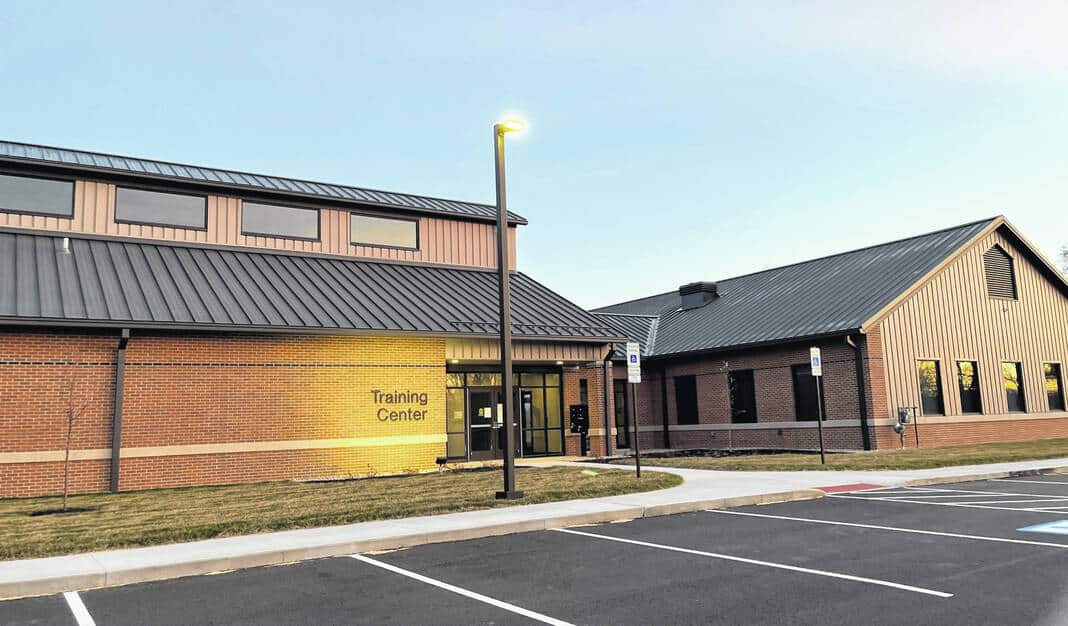
The exterior of the Tri-County Board of Recovery and Mental Health Services Training Center entrance of the Administration & Training Center, 1280 N. County Road 25A, Troy.
Courtesy photo

Reed
TROY — After more than a decade of planning and 18 months under construction, the Tri-County Board of Recovery and Mental Health Services has moved into its new permanent home at 1280 N. County Road 25A, Troy.
The facility contains offices for the Tri-County Board; Community Housing of Darke, Miami and Shelby Counties; NAMI Miami, Darke and Shelby Counties; and Miami County Family and Children First Council. There are guest offices that will be made available to other service agencies on an occasional basis.
The facility features a spacious training center, which has already hosted its first multi-day training in December, with the 21st Crisis Intervention Team Academy for Law Enforcement Professionals. Smaller conference rooms also host multi-agency meetings, and have remote meeting capabilities.
Also on the grounds is a garage to support maintenance and storage needs for the Community Housing property management. The Board owns a number of single-family homes and apartments for persons with severe and persistent mental illness, and also owns recovery homes in Shelby, Miami and Darke counties. Community Housing manages those properties for the Board.
The project is fully funded through a combination of Board capital reserves, state capital funds, and donations from private foundations, companies and individuals. The general architect for the project is Freytag and Associates of Sidney.
The Tri-County Board of Recovery and Mental Health Services awarded a $3,974,000 contract to Brumbaugh Construction of Arcanum as General Contractor in June 2021. The Board began moving into the facility in November 2022. The building comprises about 13,000 square feet, not including the garage.
To coincide with the opening of the Administration & Training Center, the Board rolled out a new logo design. The logo is a contemporary take on the previous logo, introducing more color and less geometric and more organic shapes.
Director of Community Engagement Brad Reed said, “The new logo is meant to represent the modernization of the behavioral health service system, and the flexibility and client-forward approaches being developed throughout the Board’s service area.”


